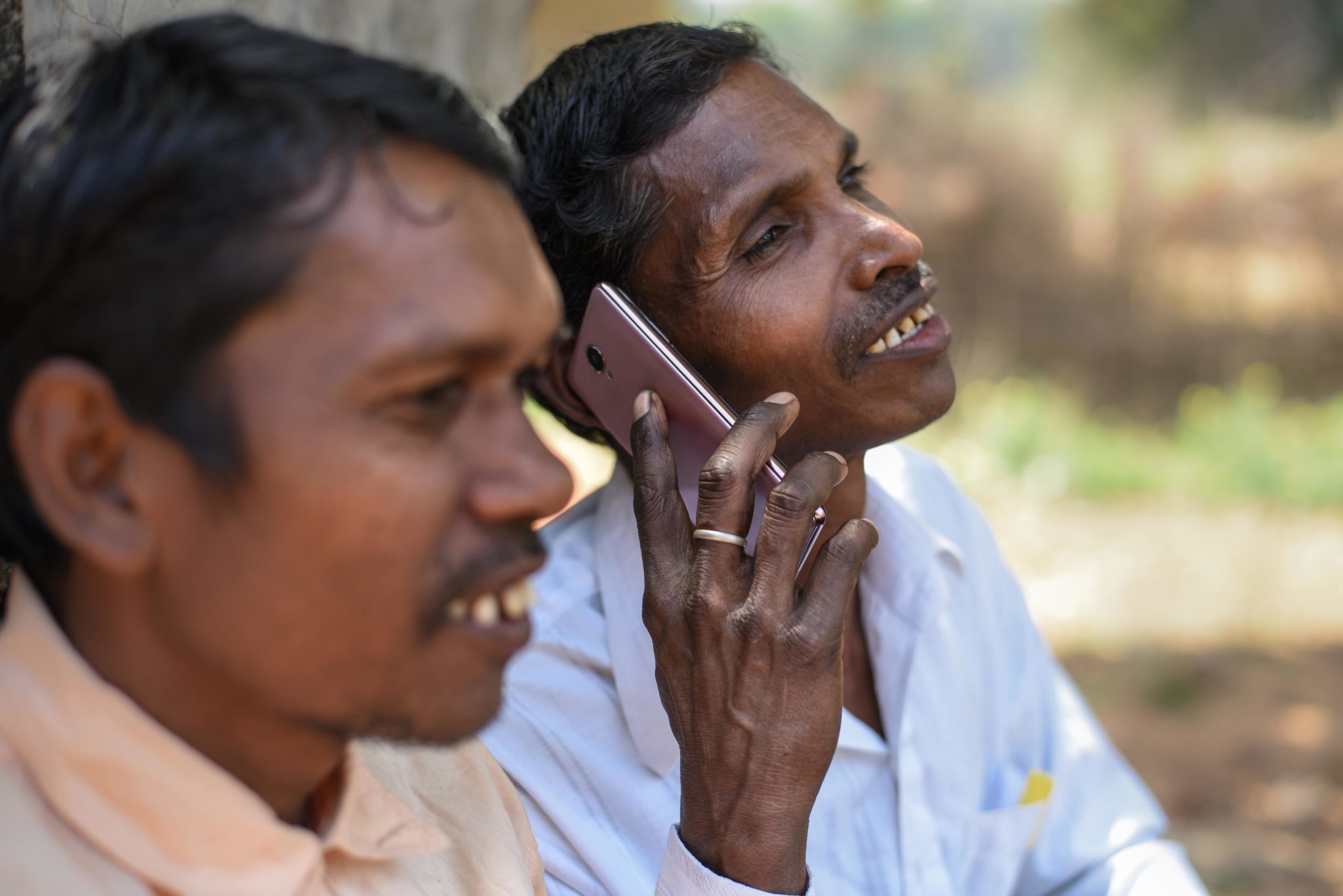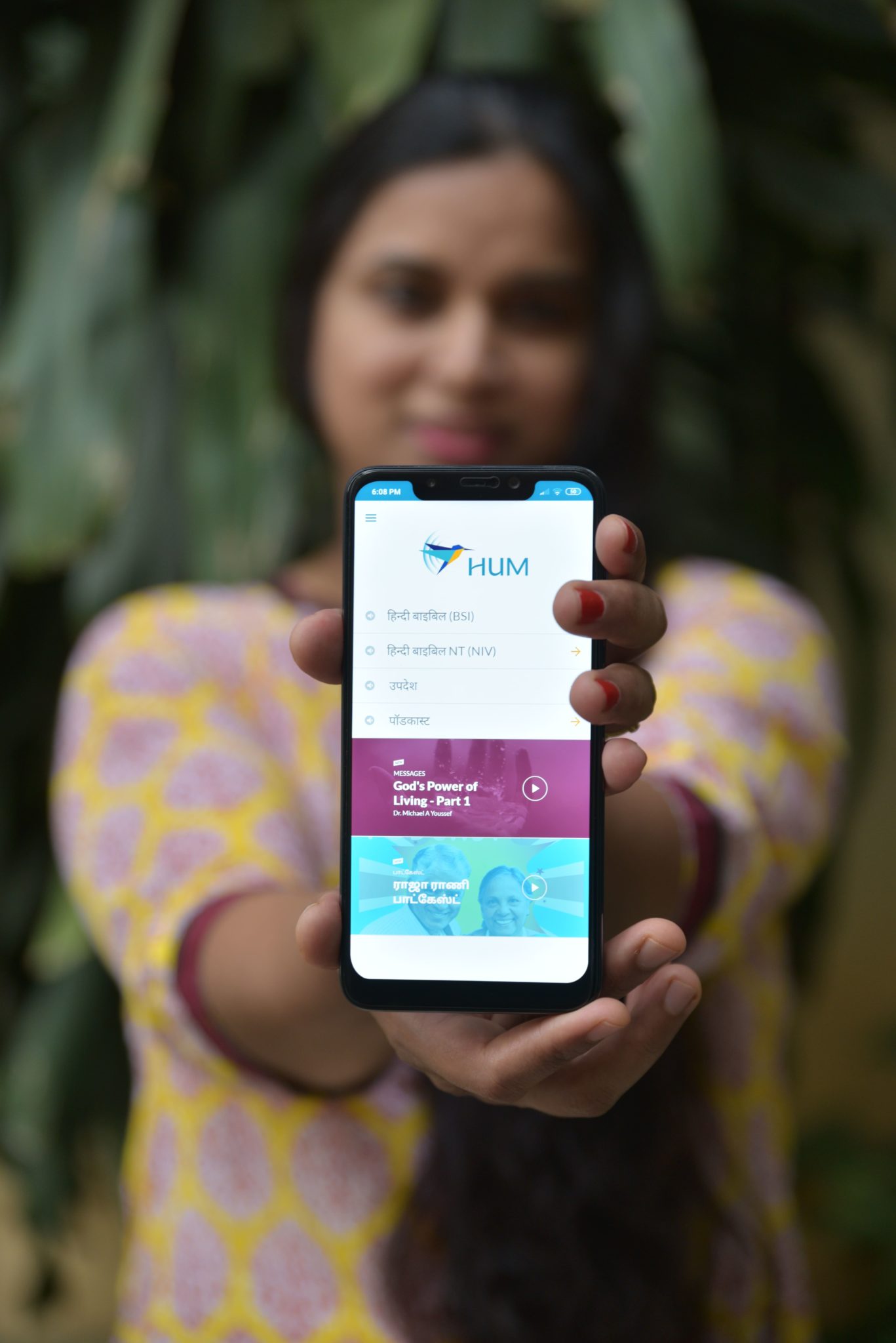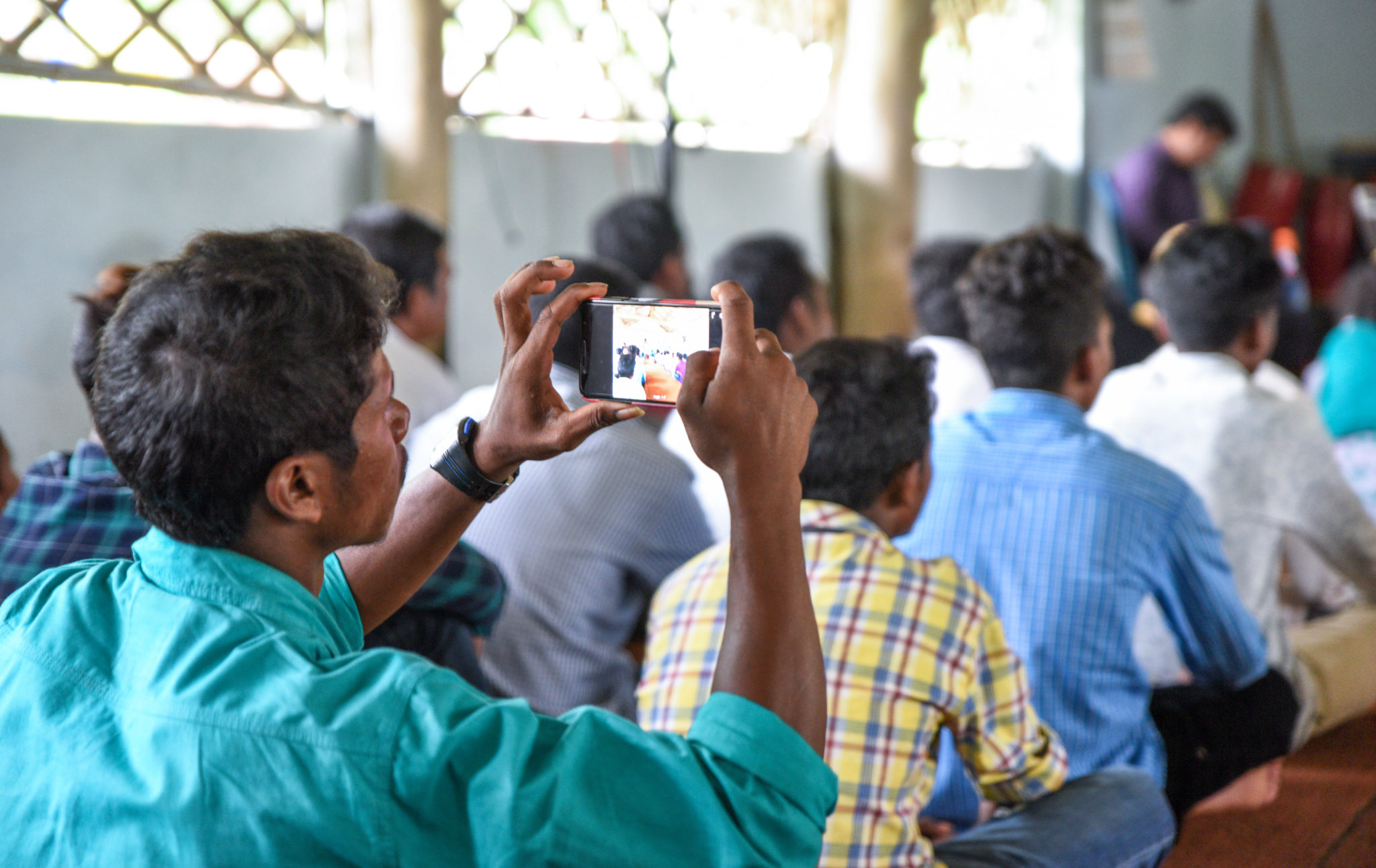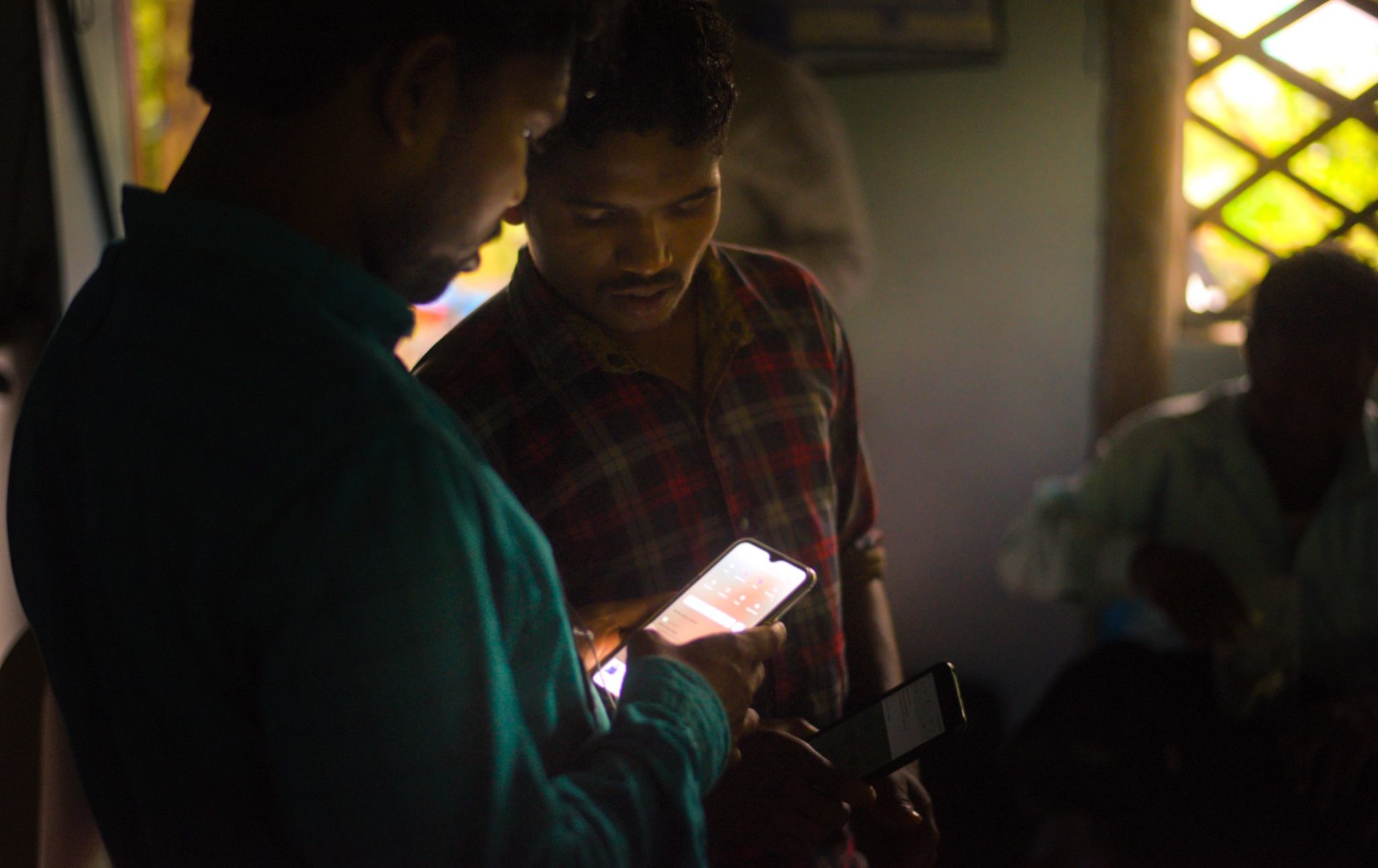I n countries like India, if I speak your heart language, we’re related. That’s just how it is,” says JP Sundararajan.
With hundreds of “heart languages” in India, it’s not surprising that most Indians learn Hindi, Kannada, and English—and possibly more of India’s 22 official languages—in order to communicate in an increasingly connected world. But a heart language, also called a mother tongue, is “the language that your mom would sing to you when you went to bed at night,” says JP.
Imagine, then, how amazing it would be to hear the Bible spoken to you in your heart language. That’s what the RCA’s audio Bible partner ministry in India (not named for sensitivity reasons) has made possible for hundreds of thousands of Indians. Since JP’s parents founded the organization nearly 40 years ago, they have distributed audio Bibles in more than 80 of the heart languages spoken in India.
What does that mean for audio Bible listeners? “The God of the universe now speaks your language, like you’re actually related to God,” explains JP.

Two men listen to the Bible in their native language using the HUM audio Bible app.
An audio Bible for a new era
But with nearly 1.3 billion people living in India—about three times the population of the U.S. in one third of the land mass, to give some context—there is still much work to be done. Sundararajan and his brother, who is now the executive director of the RCA’s partner in India, were born and raised in Bangalore, India. (His brother is also left anonymous to protect their work.) The accessibility of God’s Word to the people of India matters deeply to them. So about five years ago, right at the time that the smartphone was taking over India, the two of them considered ways to reach more people.
“India is the second largest smartphone market in the world after China and ahead of the U.S,” says JP.
“Right now, anywhere you go in India, you see everybody having a smartphone,” adds JP’s brother. “But what was really surprising was the way rural India or the non-literate people of India adapted to smartphones.”
And that’s when the idea of the HUM app was born.
The audio Bible app’s features
HUM is a free mobile app that provides recordings of the Bible in a variety of India’s languages. To make HUM stand out in the field of audio apps, JP and his brother made a commitment to stream the Bible in heart languages, not just official languages. Because of copyright issues, only 43 languages were available when the app launched, but the brothers are working to add more. Eventually, the app will have sermons available in those languages and will allow people to ask questions, which will be answered in their language, possibly by podcasts.
The key to the app is that it is intuitive and designed to be navigable by the 60 percent of the Indian population that is illiterate. The Bible is audio, the messages are audio, and the user can ask questions verbally that will be answered in that language.
The purpose of the app, says JP’s brother, is to be a place “where people come to spiritually engage with Scripture, know Scripture—relevant Scripture—and enjoy Scripture in the way it ought to be enjoyed.”

A view of the HUM app on a smartphone.
Creating an app for all
Launching an app is easy. Launching an app that does not have bugs and that people will want to keep using, however, is not. So the brothers are working with a company from Wisconsin that has designed apps for ESPN and the Milwaukee Brewers. The company is big, but the CEO himself contacted JP the day after they pitched the HUM app idea to them.
“He said that he’s a Christian, half of his team are believers, and the other half come from all faith backgrounds or no faith at all. But every one of them, when they heard this idea, wanted to be part of making this app,” says JP.
To make an app that is consistent and free from bugs is not a cheap project. Just creating the app costs $200,000, and adding upkeep and publicity pushes the total cost to $250,000. Still, says JP, “God went on ahead of us in helping raise the funds,” starting with his own young daughter’s contribution of $2.53 of her own money. In fact, an app development company that bid on the project and was turned down donated $2,000 because they believed in it so much.
What’s in a name
The name of the app, HUM, was a specific choice because of its several meanings. JP explains that ancient cultures often had myths about the sound that the universe makes. That the universe hums is a common belief among Hindus in India, he says. “It’s like we’re reclaiming that to say that [the “hum”] is the sound of God moving God’s people … that it’s God’s hum to invite his people.”
Not only that, but “hum” in Hindi means “us.” As JP explains, “technology is the great equalizer. It doesn’t matter if you’re a leper or a member of the Munda tribe, or a professor at Western Theological Seminary,” says JP. “On the internet, you’re just a handle. You’re all at a table together asking and answering questions.”

A man takes a photo during a presentation about the app.

Two men explore the HUM audio Bible app.
Making the gospel accessible
JP’s brother sees the app’s release as God-timed because of the religious climate in India. Both he and JP point to the fact that, in theory, the Indian constitution is democratic and calls for freedom of religion, but in practice, Christians, who are a minority in India, are suppressed. Outright proselytizing is prohibited. In fact, the RCA’s partner in India charges for its other audio Bible devices on a sliding scale to avoid getting in trouble for trying to convert people; by paying, device users show they are interested.
By contrast, with an app, “it’s the user’s choice to download. He has the choice to listen to it; he has the choice to delete it,” says JP’s brother. “No one can accuse us going forward saying that we are giving a free app and converting people. We just give a free app. … I’m just putting it out there, and if people want to download, they can do it. They agree to the user agreement. And then they get an opportunity to listen to the gospel.”
And hearing the gospel is the whole point. JP’s brother recounts a story about some Muslims who became Christian because they found a tract on the road and felt compelled to learn more about Jesus. “And that led them to Christ,” he says. “It’s just very fascinating, because the one thing they are telling us is that even if you Christians are afraid to come to us, God finds us somewhere.
“I believe the app is going to be that. … God’s going to find God’s people [with the app].”
The Bible app’s future
The app launched in March, though the brothers will wait to have a launch party until there are 100,000 downloads. In the meantime, there is still more work to be done. JP’s brother says, “I see a lot of scope. The potential is huge.” He imagines hosting Bible listening competitions, offering Bible stories on audio, working with radio stations, and determining where it’s being used least and how to increase those numbers.
Though the numbers are exciting, what’s at the heart of the app is much more significant: “There’s a deep realization [among the people listening to the audio Bible] that it’s not just a machine that is speaking your language—that it’s God speaking your language,” says JP. “How profound that is for all of us who talk about a personal relationship with Jesus.”
Spread the word
Support the development of HUM or learn more about the app. Download it on Google Play.

Jennifer Knott
Jennifer Knott is a former writer and editor for the Reformed Church in America’s communication team.



